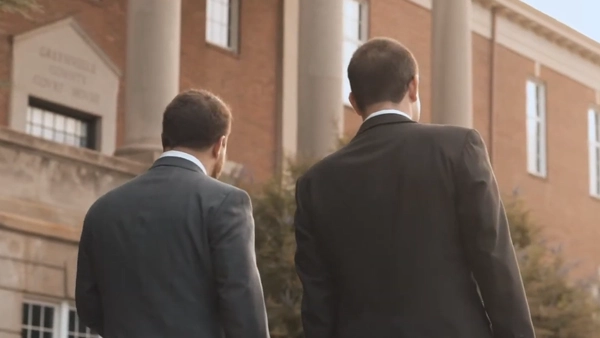Accidents happen every day, but when someone else’s carelessness causes another person harm, the law provides the injured person a way to seek justice for those harms. Whether a case involves a car crash, a slip and fall, or a medical mistake, personal injury claims often come down to one key legal concept: negligence.
The concept of negligence is the framework the law uses to determine who is responsible in situations where another person is harmed. It requires showing that someone failed to take reasonable care, and that failure caused another person’s injury. It sounds straightforward, but each of the four elements of negligence must be demonstrated to establish liability and secure compensation.
Proving negligence is essential because it directly impacts whether you can receive compensation for your injuries, including reimbursement for medical bills, lost wages, and other damages. Unless you can establish negligence, the path to recovery can be much harder, if not impossible.
That’s where an experienced personal injury lawyer can help. At David R. Price, Jr., P.A., we’ve helped our clients prove negligence and secure the compensation they need to heal.
What Is Negligence?
“Negligence” is the failure to use reasonable care under certain circumstances. For instance, if someone does something that a reasonable person would not do, or doesn’t do something that a reasonable individual would do, then that person can be liable for damages if the unreasonable act or omission causes loss or harm to someone else.
Individuals who do not use reasonable care are required by law to compensate the victims of their negligence.
What Are the Elements Required to Prove Liability Negligence?
To prove liability for negligence, an injured person must prove four primary elements. If a plaintiff cannot establish each of these elements, they will not receive compensation for their injuries.
1. Duty of Care
First, a person must prove that the defendant owed him a legal duty of care. This legal duty of care is established by the injured person’s relationship with the defendant.
For instance, property owners must ensure that their buildings are safe for renters, visitors, employees, customers, or anyone entering the property with permission. They must use reasonable care to identify and fix hazardous conditions within a logical timeframe.
Similarly, drivers have a duty of care to other motorists to ensure that their cars are roadworthy, to operate their cars safely, and to follow all the traffic rules.
2. Breach of Duty
After proving that the defendant had a duty to care, the court will determine if they breached this duty by doing something that a reasonably careful individual would not have done in a similar situation. The defendant will most likely be termed negligent if an average prudent person would have behaved or acted differently from what the at-fault party did in that circumstance.
3. Causation
Causation requires an injured person to prove to the court that the defendant’s breach of duty caused his injuries and other damages.
The damages or injury must have been reasonably foreseeable in that situation, and the court must determine the damages would not have resulted “but for” the breach of duty. For example, if a driver fails to stop at a pedestrian crossing and hits someone causing them severe bruising or a broken leg, those injuries were reasonably foreseeable and would not have occurred “but for” the driver’s failure to follow traffic rules. In that example case, the driver’s failure to show reasonable care caused the pedestrian’s injuries.
4. Damages
A person who acts unreasonably is responsible for the damages caused by their negligence, including injuries and property damages. Significant damages that may be incurred in a personal injury case include pain and suffering, medical bills, and lost wages.
Even when the losses and damages are apparent, the defendant may try to downplay the nature and extent of the injuries to reduce the compensation amount. However, an experienced attorney will be able to help document and calculate all of the damages that an injured person has incurred.
How We Can Help Prove Negligence in Your Personal Injury Case
Proving negligence in a personal injury case isn’t always straightforward. Insurance companies and defendants will do everything they can to deny responsibility or downplay the extent of your injuries. Here is how the law firm of David R. Price, Jr., P.A., can help prove negligence in your case.
1. Investigating Your Case
The foundation of any successful negligence claim is evidence. Our team will dig deep, collecting police reports, surveillance footage, witness statements, and medical records to prove what happened. In complex cases, we work with accident reconstruction experts and medical professionals to strengthen your claims.
2. Proving Duty of Care and Breach of Duty
To win a negligence case, we must first show that the defendant had a duty of care toward you and that they breached that duty. We gather the facts and legal precedents necessary to demonstrate their responsibility for their unreasonable actions.
3. Establishing Causation and Damages
Even if we prove someone was negligent, we still must prove that their actions directly caused your injuries. We use evidence to connect the dots between their actions and your injuries, ensuring that the responsible party can’t deny their role in your suffering. Then, we document and calculate the extent of your damages—medical bills, lost wages, pain, and suffering—to seek fair compensation.
4. Fighting Insurance Companies
Insurance companies often try to downplay injuries, shift blame, or offer lowball settlements. We handle all negotiations, pushing back against unfair tactics and advocating for the full compensation you deserve. If necessary, we are prepared to take your case to court and zealously argue your case to the jury.
Types of Negligence FAQs
+ What Is Comparative Negligence?
Comparative negligence is the idea that a victim’s negligence may have partly caused her injuries and losses. In South Carolina, a victim’s compensation will be reduced by her percentage of fault. If she is found to be more than 50 percent at fault, she can be barred from receiving compensation.
+ What Is Gross Negligence?
Gross negligence refers to extreme negligence; the defendant fails to exercise even minimal care or diligence.
+ How Long Do I Have to File a Personal Injury Claim?
In South Carolina, the statute of limitations for personal injury cases is usually three years from the date of the accident. In some instances, it can be as short as two years from the date of the accident. If you miss this deadline, you may lose your right to seek compensation.
+ What Types of Damages Can I Recover in a Personal Injury Case?
You may be eligible to recover economic damages for medical bills and lost wages, non-economic damages for mental anguish, pain and suffering, and loss of enjoyment of life, and sometimes punitive damages if the defendant’s conduct was particularly egregious.
Contact Our Personal Injury Lawyers at David R. Price, Jr., P.A.
In every personal injury case there is a person whose life has been unexpectedly disrupted. You might be facing medical bills, loss of income, and a future filled with rehabilitation and uncertain economic losses. It’s a lot to handle for an injured person to handle on their own, and that’s why we’re here to guide you through every step.
At David R. Price, Jr., P.A., our approach is thorough and tailored to each of our clients’ unique situations. We will delve deep into the details of your case, ensuring that every potential avenue for proving negligence and recovering reimbursement for your damages is explored. If you’re ready to discuss your case, contact us at 864-271-2636 to request a free consultation. Let us help you take the first step toward a resolution that is both fair and favorable.







